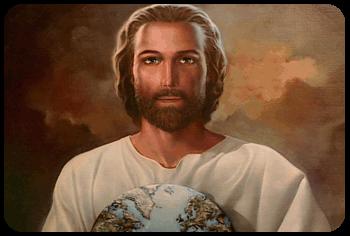|
**List: Cherokee Ministry
the Bible ( the Bible )
Cherokee...
"The Cherokees, next to the
Navahos the largest Indian group in
the United States, now number about 40,000, of whom 25,000
live in Oklahoma and 15,000 in North Carolina. As early as
1540, De Soto recorded meeting the Cherokees. The tribe was
on friendly terms with the early American colonists. Around
1750, when nearly half the Cherokee population was wiped out
by a smallpox epidemic, the tribe was settled in the mountainous
area from North Carolina to Georgia.
A constitution adopted in 1827 established them as the Cherokee
Nation. Shortly thereafter most of the Cherokees were forcibly
removed to Indian Territory (Oklahoma). There they set up a
capital at Tahlequah, where they had local self-government.
Early in the 20th century they disbanded as a tribe and became
American citizens.
The Cherokees are the only American Indians with a syllabary
devised by one of their own people. its inventor was a Tennessee
Cherokee named Sequoya. He was a lame, uneducated half-
caste, yet it was in honor of him and his deeds that the great
redwoods came to be called Sequoias. Impressed with the power
and value of the written word, Sequoya felf ‘if he could make
things fast on paper it would be like catching a wild animal and
taming it’. With the aid of an old English spelling book, which
he could not read, he began the task of committing his language
to writing. At first he tried to devise a sign for each word.
After
three years he abandoned this seemingly endless project and
attempted instead to assign a symbol to each sound in the
language. He found that 86 ‘letters’ would represent every
sound in the Cherokee language. Despite ridicule and persecu-
tion (once his house was burned down), he labored through 12
years of trial and error until, in 1825, his syllabary was complete.
Then followed a long struggle to persuade his people to use the
writing. Once the initial opposition was overcome, the syllabary
proved easy to learn and use. Scientifically sound, the syllabary
was used and remains in use for all Cherokee literature. Chero-
kee is an Iroquoian language.
It is related to Mohawk and
Seneca." --1000 Tongues, 1972
[Info only]
|
**File: Cherokee Bible History (3)--1860
S. Bagster [Info only]
"1829 Matthew 1833 Acts
New Echota, Georgia
1838 John Park Hill, Indian Territory, USA
Translated by Samuel A. Worcester and Elias Boudinot."--1000
Tongues, 1972 [Info only]
|
"1840 1-3 John 1844 1, 2
Timothy 1847 James Park Hill
Translated by S. A. Worcester and Stephen Foreman."--1000
Tongues, 1972 [Info only]
|
"1847 Mark 1, 2
Thessalonians Titus Jude
Philemon
Cherokee Baptist Mission, Indian Territory
Translated by Evan Jones and John B. Jones."--1000 Tongues,
1972 [Info only]
|
"1848 1, 2 Peter Park Hill
Translated by S. A. Worcester and S. Foremen."--1000 Tongues,
1972 [Info only]
|
"1848 Galatians-Colossians 1, 2
Peter 1849 Romans
1, 2 Corinthians Hebrews Revelation
CBM, Cherokee
Translated by Evan Jones and John B. Jones."--1000 Tongues,
1972 [Info only]
|
"1850 Luke 1853 Exodus
1856 Genesis 1857 Mark
1858 Romans-Ephesians Park Hill
Translated by S. A. Worcester and S. Foreman."--1000 Tongues,
1972 [Info only]
|
"1859 Philippians-2 Thessalonians
Titus-Hebrews Jude
Revelation Park Hill
Translated by S. A. Worcester, S. Foreman, and Charles C.
Torrey."--1000 Tongues, 1972 [Info only]
|
"1860 New Testament ABS
A revision of the Worcester text by Charles C. Torrey."--1000
Tongues, 1972 [Info only:
CHEROKEE CHARACTER "1860" Mark 1:2 unknown.]
|
"1888 Jonah Tahlequah, Indian Territory,
USA
Translated by Amory N. Chamberlain."--1000 Tongues, 1972
[Info only]
|
CHEROKEE--1000 Tongues, 1939 [Info only: Cherokee characters
n.d. John 3:11-17, 21-28 unknown.]
"1948 John 1951 New Testament
Westville, Oklahoma
A revision by the Cherokee Scripture Committee."--1000 Tongues,
1972 [Info only]
|
"1953 Jonah ABS
A corrected version, prepared by M. A. Pearson."--1000 Tongues,
1972 [Info only]
|
|



